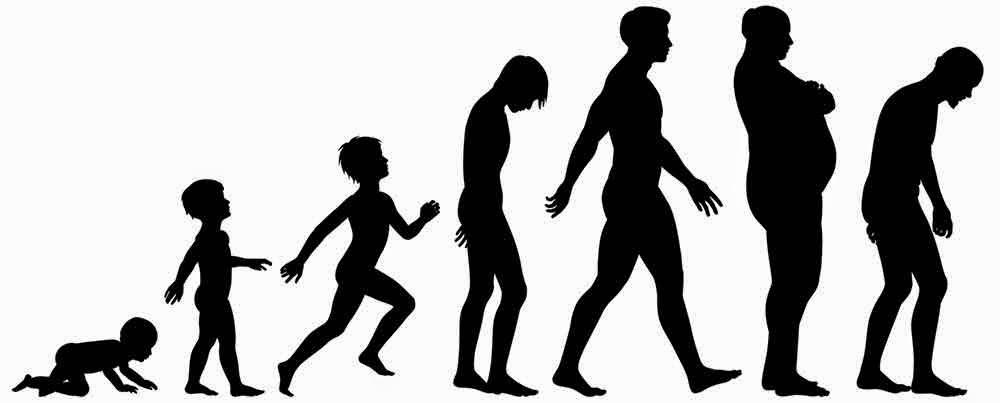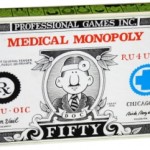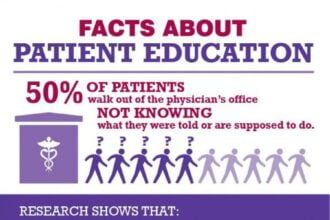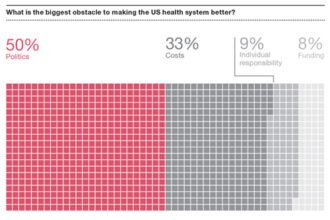It is possible to slow the aging process. No, there is no Fountain of Youth and no, there is no pill that’s been discovered. It’s all about lifestyle and this means starting at an early age and sticking with it through the years.
I was recently invited to give a talk to a group of about 100 individuals contemplating moving to a continuing care retirement community. The topic – is it possible to slow the aging process? I titled it “Aging Gracefully.” Here are my thoughts divided into three major categories: the normal aging process, slowing the aging process, and (in a post to follow) obtaining the very best comprehensive health care. The talk was picked up by the Howard Times of the Baltimore Sun; the reporter’s article is available here.
“Old parts wear out.” That’s normal aging. It’s universal, it’s progressive and, at least as we know it today, it is irreversible. Most organ functions decline by about 1% per year. Fortunately our organs have a huge redundancy and so we can afford the declines without illness. But eventually if we live long enough and the process continues at the usual rate a point is reached at which functional impairment or actual disease presents.
Let’s use bone mineral density and cognitive function as examples. During our childhood and teenage years our bone mineral density increases and with it our bone strength. It reaches a peak at about age 20 and plateaus and then by age 35 starts a slow but inexorable decline of about 1% per year. Should we live long enough we will reach a point which we can call the “fracture threshold” meaning that if we fall it’s possible to break a leg or a bone in our back. Of course that 1% decline per year is an average. Some people decline faster and some people decline more slowly. We’ll come back to that point. The same goes for cognitive function. We’re at a peak at about age 20 and then there is a long plateau with a slow decline such that by the time we’re in our 80’s or 90’s most people have some noticeable decline in cognition.
There are certain impairments that come with aging such as reduced vision, reduced hearing and reduced mobility. We might not consider these as true diseases. However there is also an increased prevalence of chronic illnesses such as heart failure, cancer, chronic lung and kidney disease and diabetes. They often manifest in older ages but they actually originated many years ago. For example coronary artery plaque buildup begins in childhood but may not manifest itself as a heart attack until the late 60’s. Similarly lung cancer is on average diagnosed at age 72 but the cause began way back as a teenager when the person first went back behind the garage for a smoke. (BTW, not all lung cancers are due to smoking but for those that are, it was a long slow process over time.)
These chronic illnesses are largely due to our adverse behaviors, our lifestyles. The four big behaviors that need to be addressed are nutrition, exercise, chronic stress and tobacco. We could add other factors but especially inadequate dental hygiene and excessive alcohol. All too many of us have poor nutrition (e.g. packaged and processed foods, lack of fresh fruits and vegetables, etc.) and at the same time we eat too much of it. Most Americans don’t get an adequate amount of exercise. It seems that everyone has some level of chronic stress and 20% of Americans smoke.
Can we slow the aging process? The answer is a definite yes and it all has to do with those lifestyles and behaviors. Here is a quiz. What percent of Americans can answer yes to all five of the following statements?
· Exercise 20 minutes 3x per week
· Don’t smoke
· Eat fruits and vegetable regularly
· Wear seat belts regularly
· Have an appropriate weight to height ratio (body mass index or BMI)
Here’s a clue. We know that about 20% of Americans smoke so the highest answer you can give to this question is that 80% could answer yes to all five. The actual answer may surprise you. It did me. Only 3% of Americans can answer yes to all five.
Let’s return to bone mineral density. The way to slow BMD decline is to exercise and to eat a nutritious diet. (Vitamin D supplements may also be necessary for those in temperate climates who get little sunshine on their skin.) So instead of a 1% decline per year it can be more of a ½% decline per year. On the other hand if we couch potatoes that decline won’t be 1% but it may be more like 1½ to 2% per year. The same goes for cognition. There are certain adverse factors such as vascular conditions and the metabolic syndrome (a precursor to diabetes) and also the chemicals released through chronic stress that speed up cognitive decline. But there are also protective factors which we can control ourselves. These include being physically active, intellectually challenged, and socially engaged. It may be a surprise that physical activity is important for cognition but it has been clearly demonstrated to be critical. Intellectual challenge is different than reading a book, even a complex book. That’s not a challenge. But if you belong to a book club and have to actively defend your perspective and point of view that then becomes a challenge. Socially engaged means being involved as a human being with other human beings. This is something that is frequently lost during older years if isolation develops due to limited mobility, inability to drive, etc.
So the essential steps of slowing the process are: Avoid tobacco and remember it’s never too late to quit. Reduce chronic stress because the chemicals released from stress have a very adverse effect on many physiologic systems such as immune function. Eat a nutritious diet. Do cognitive exercises which challenge your intellect. Remain socially well connected. Physical exercise should include aerobic activity of about thirty minutes five days per week (just simple walking is adequate); resistance or weight training 2-3 times per week and balance exercises 2-3 times per week.
To summarize, there is a steady slow loss of physiologic function in most of our organs over time. It is possible to slow this 1% decline and with it the ultimate functional impairments. It is also possible to avoid or certainly delay age-prevalent diseases. But in both cases it’s up to us. It’s up to us to adjust our lifestyles and we preferably need to do so beginning at a young age. That said, it is never too late to begin a preventive program. We can slow physical decline with exercise, diet and reducing stress. We can avoid many diseases by not smoking. We can slow cognitive decline with physical activity, intellectual challenges and social engagement.
Next post – The importance of comprehensive primary care in managing the aging process.










